Bacteria is all around us and is a very important component within our bodies to function properly. With the concept of sanitization and antibiotics in modern society, we are less prone to run into the necessary bacteria our gut requires. This is why your doctors suggest taking a supplemental probiotic to guarantee your system has the bacteria required. Probiotics are species of health-promoting bacteria that we require for proper digestion of food and immune defense against illness promoting bacteria, viruses and fungi. Ten years ago, this was a foreign concept for many and most people but probiotics, the good bacteria naturally found in our guts, have now become a household name. However, prebiotics are a relatively newer concept which are making news these days.
What are prebiotics? Prebiotics are natural carbohydrates that are hard for humans to digest, meaning they stick around long enough to remain intact at the end of the digestive process. They work to actively promote the growth of good bacteria in the digestive system. More simply, prebiotics are the food for the probiotics in our systems.
How do prebiotics and probiotics work together? When prebiotics meet probiotics in the colon, fermentation takes place resulting in the production of short-chain fatty acids, lactate and gas. When consumed, studies show that prebiotics lead to an increase in the growth of good bacteria in the gut. The more good bacteria, the less opportunity for bad bacteria to grow and take over. This leads to a longer term healthy gut and overall wellness.
Where can I find prebiotics and probiotics in my diet? You probably don’t realize that you are already eating them! You can find both prebiotics and probiotics in some pretty common foods
Prebiotics
Probiotics
The real magic happens when these two types of products are eaten together (think: bananas on top of yogurt). And if you find these foods aren’t on your normal grocery list, you can always opt for a nutritional supplement. We recommend Innate Choice probiotics which you can pick up at your next office visit.
Are there long term benefits of prebiotics and probiotics? Research shows that the total number of bacteria living in healthy adults amount to 10 times more bacteria than number of cells in the human body! In fact, a healthy digestive tract should contain over 2 pounds of bacteria. When your body is supplied with the necessary health-promoting bacteria, bad bacteria is unable to grow leading to disease. This leads to overall wellness and has shown to help with these digestive afflictions:
What are prebiotics? Prebiotics are natural carbohydrates that are hard for humans to digest, meaning they stick around long enough to remain intact at the end of the digestive process. They work to actively promote the growth of good bacteria in the digestive system. More simply, prebiotics are the food for the probiotics in our systems.
How do prebiotics and probiotics work together? When prebiotics meet probiotics in the colon, fermentation takes place resulting in the production of short-chain fatty acids, lactate and gas. When consumed, studies show that prebiotics lead to an increase in the growth of good bacteria in the gut. The more good bacteria, the less opportunity for bad bacteria to grow and take over. This leads to a longer term healthy gut and overall wellness.
Where can I find prebiotics and probiotics in my diet? You probably don’t realize that you are already eating them! You can find both prebiotics and probiotics in some pretty common foods
Prebiotics
- Bananas
- Onions
- Garlic
- Leeks
- Asparagus
- Artichokes
- Soybeans
- Whole-wheat foods
Probiotics
- Yogurt
- Kefir products
- Aged cheeses
- Kimchi
- Sauerkraut
- Miso
- Tempeh
The real magic happens when these two types of products are eaten together (think: bananas on top of yogurt). And if you find these foods aren’t on your normal grocery list, you can always opt for a nutritional supplement. We recommend Innate Choice probiotics which you can pick up at your next office visit.
Are there long term benefits of prebiotics and probiotics? Research shows that the total number of bacteria living in healthy adults amount to 10 times more bacteria than number of cells in the human body! In fact, a healthy digestive tract should contain over 2 pounds of bacteria. When your body is supplied with the necessary health-promoting bacteria, bad bacteria is unable to grow leading to disease. This leads to overall wellness and has shown to help with these digestive afflictions:
- Assist in treatment of diarrhea
- Reduce irritable bowel symptoms
- Reduce the recurrence of bladder cancer
- Prevent various infections in the intestines
- Prevent and treat urinary tract and yeast infections
- Prevent and treat eczema, especially in children
- Prevent and treat symptoms of cold and flu
- Bengmark S. 1998. Immunonutrition: role of biosurfactants, fiber, and probiotic bacteria. Nutrition. 14:585-94.
- Gill HS and Guarner F. 2004. Probiotics and human health: a clinical perspective. Postgraduate Medical Journal. 80:516-26.
- Reid G, Jass J, Sebulaky MT, McCormick JK. 2003. Potential uses or probiotics in clinical practice. Clinical Microbiology Reviews. 16(4):658-72.

 RSS Feed
RSS Feed
